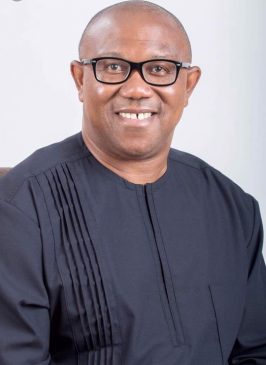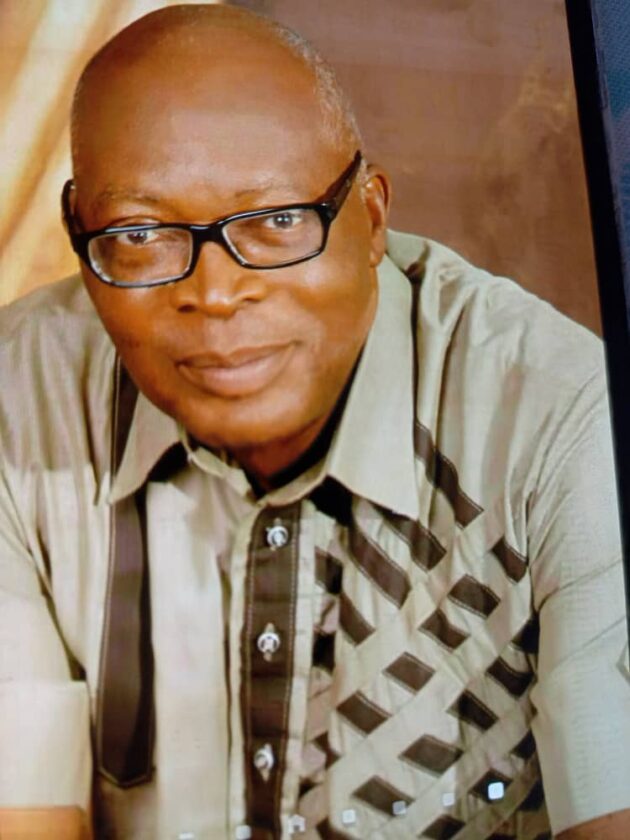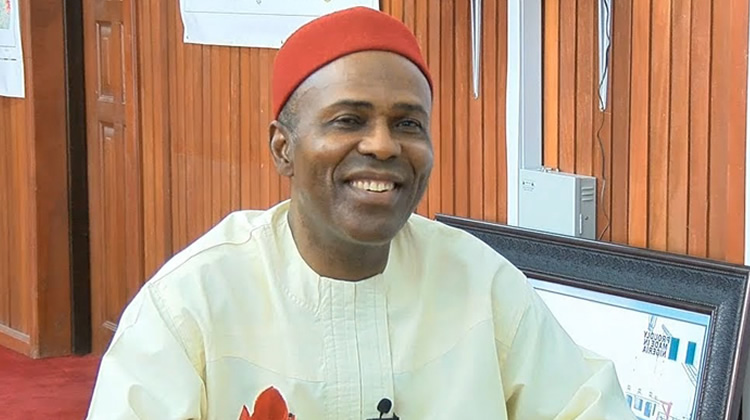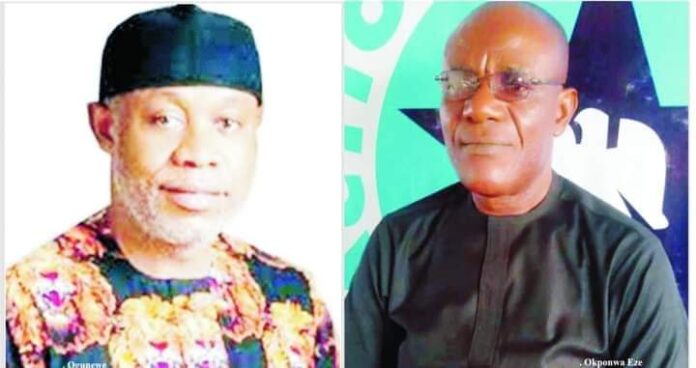
By Lasisi Olagunju
There is a trending video of a senile Paul Biya, President of Cameroon, at the just concluded US-Africa Leaders Summit in Washington, DC. He is called to deliver his speech after President Paul Kagame of Rwanda. He comes out, sits down and starts browsing aimlessly through a pamphlet he is holding. He mutters some words to no one in particular. Then he gets up….People who understand the French spoken in the video say the man acted and said things which showed that he was not aware of where he was and why he was there. Eighty-nine-year-old Biya marked 40 years in power last month. He became president of the Republic of Cameroon on November 6, 1982 and has seen the country and its fortune melt progressively like wax set on fire. The man is the country; his son is positioned to be the future. More than 90 percent of Cameroon’s almost 25 million people have known no other president in their entire lives apart from Biya. They call him ‘father.’ You are likely to say Nigeria can never have a Biya who would sit tight here for 40 years. You may be right – and you will be wrong at the same time. Look at those very old men seeking to be our president in 2023. None of them will win and spend forty years on the throne – merciful nature will take care of that for us. But imagine one of the old men, if he wins, and he wills it, subsequently deciding to buy the throne for his thirty-something-year-old son. We will gladly sell out to him because we are always willing to sell. And, if the son is smarter than the dad, he will be there and get our lawmakers to amend the constitution, and buy power from us for himself and his descendants forever. We have enough foolishness, and madness, and the potential – and the structure- to make that happen.
There will be a Biya in Nigeria unless we demolish and reconstruct Nigeria’s house of abuse. Nigeria’s Labour Party’s presidential candidate, Peter Obi, said that much in Akwa Ibom last week: “The structure they have today is what we want to dismantle. It is a structure of criminality,” he lashed out at the establishment people who have forever held the knife and the yam of Nigeria. The big men, especially Obi’s opponents, taunt him repeatedly that he ‘lacks structure’ to translate his mass appeal and mass following to electoral success in the coming poll. And for them, he had bad news. He said the structure his opponents gloated about “is the structure that produced 133 million people living in poverty, 20 million out-of-school children, and made Nigeria surpass India in infant mortality. It is the structure that destroys us; we want to destroy that structure.” He spoke well, very well – the best words he has uttered since the beginning of this contest. There is no doubt about it that the killer-structure deserves to go if we must save ourselves and the country.
Ask computer engineers what to do to fix a bad system. They will tell you that the first fix is to restart your computer. Sometimes restarting demands force. “If it isn’t responding, and you can’t turn it off, then on, try forcing it to restart.” That is the advice from the makers of iPhones. They say so because they are wise. The sensible thing to do when a country is failing, or has failed, is to rework the structure, the parts, including the expansion joints. The pernicious Nigerian structure, if it survives the 2023 elections, will produce more than what Obi said. It will produce leaders worse than Biya – he has a senior, Teodoro Obiang Nguema Mbasogo, the president of Equatorial Guinea; that one has been in power since 1979. How long should an era last? His son is also the heir there. We do not yet have a Biya or an Mbasogo family gnawing at our guts but we have a ruling caste feasting on the heart of the system. They’ve narrowed the route to survival and they man the gates. And it will get worse. So, how do we escape that which is coming? Obi B. Egbuna was a Nigerian novelist, short story writer and playwright. He once wrote that “one way to destroy a people is to allow only the fools to survive.” And who is a fool? Plato has a definition: the one who revels in malicious pleasure. Plato’s teacher, Socrates held that mankind is made up of two kinds of people: wise people who know they’re fools, and fools who think they are wise – we have them as leaders and followers; both have a role to play in the coming contest for the soul of Nigeria.
One of Obi Egbuna’s most popular works is ‘Destroy this Temple’, a book about defiance and decisiveness against decay. I believe he took that book title from the Bible where Jesus Christ saw an abuse of structure and moved against it. Yesterday was Christmas, the festival of celebrations of Jesus’s birth. How many of those who sang and danced in celebration yesterday live their lives like Christ who left here over 2,000 years ago? He was calm and gentle but there was a lone incident where he lost his cool and went physical against abusers of privileges. The Bible has that instructive story that fits this narrative about breaking down and rebuilding a bad system. Men of advantage had ‘abducted’ the space of the Temple in Jerusalem and turned it into “a den of thieves” and “a house of trade” – a structure for sleaze and greed and hightailed loots of the ruling class. Jesus saw it but didn’t just whine and leave. With whip, he expelled the merchants and the money changers. “And Jesus entered the temple and drove out all those who were buying and selling in the temple, and overturned the tables of the money changers and the seats of those who were selling doves” (Mathew 21:12). Bible scholars call this story the cleansing of the Temple narrative. We need a reenactment of this rite in Nigeria. The Nigerian nation is like that Biblical Temple; it has become a haven for bandits and a place of refuge for ‘money changers’ to hold court.
The lesson from the temple story here is that there is no system that cannot be corrupted if the people it serves go to sleep. At the core of that temple incident was money and its corruptive influences. In ‘The Challenge and Spirituality of Catholic Social Teaching’, Marvin L. Mich Krier quotes William Herzog, author of ‘Parables as Subversive Speech’ as arguing that “the Temple cleansing cannot be divorced from the role of the Temple as a bank.” Criminals used “the temple’s outer court to change impure foreign money to temple coins for purchasing sacrificial animals” (Jack Hartjes, 2022). Krier proceeds to further give a scholarly insight into the political economic significance of the Jewish Temple: “In the time of Jesus, the Temple amassed great wealth because of the half-shekel temple tax assessed on each male. Historical evidence supports the fact that large amounts of money were stored in the temple. The temple then was able to make loans on behalf of the wealthy elite to the poor. If the poor were not able to pay their loans, they would lose their land. ‘The temple was, therefore, at the very heart of the system of economic exploitation made possible by monetizing the economy and the concentration of wealth made possible by investing the temple and its leaders with the powers and rewards of a collaborating aristocracy.’ As evidence of this role of temple funds, Herzog notes, ‘it was no accident that one of the first acts of the First Jewish Revolt in 66 C.E. was the burning of debt records in the archives in Jerusalem’ ” (Marvin Krier: 2011).
Just like the Temple in Jerusalem, Nigeria, built with the sweat and blood of all, has become some people’s business empire. It has become a country of public debts for all and private wealth for a select few. The year 2023 is one of decision and desperation. And it is just one blurry week away. We have old presidential candidates, fading and very desperate – because it is their last battle. We have third-force candidates backed by a very desperate youth population, and hordes of the angry poor who talk about taking back their lives from a plundering political elite. What is going to happen? When I heard one of them, Peter Obi, speak in Akwa Ibom with a promise to destroy the structure that has made a fool of honesty in Nigeria, I asked how he was going to do it. Peter Obi told the Nigerian youths: “…you are the next structure. We want to build a better place for our children.” The man obviously has a heart of gold but that is where it ends. Even if he wins, his win will reinforce the pillars of the structure he spoke of destroying. He will be sucked in and initiated fully into the sacred grove of the principalities. So, I think the ultimate solution is the destruction of Nigeria’s faithless temple – using the law. Nigeria is too defective to work. We must employ the law to destroy the temple and create our own “three days” to rebuild it. We need a new temple of justice and fairness to live normal lives. There are, of course, consequences; every act of cleansing has. Those who inherited the odious structure of Nigeria have a duty to keep it for their descendants even if the country’s 200 million people have to go down in the process. The noose is tightening as the darkness lengthens. The options are not pleasant and are not many. Protests and protestations will amount to nothing in the new year. One of the big presidential candidates told us last week. But good people everywhere must not keep quiet – and must resist being silenced by those who think they alone have a voice. At the same time, we should know that he who chooses to pray for the street madman must not close his eyes. And if you are moving against insanity, your footfall must wear shoes of silence at all times. The world has always been a dangerous place to practise iconoclasm. David Landry, a professor in Theology at the University of St. Thomas, United States, is quoted variously by other scholars as pointing out to us that “within a week” of Jesus fighting the principalities in the Temple, he was dead. Landry cites the disciples, Matthew, Mark, and Luke as agreeing that the Temple cleansing event “functioned as the ‘trigger’ for Jesus’s death.” Krier also tells of these consequences. He points at the book of Mark where Jesus accused the merchants of making the Temple a den of robbers: “And when the chief priests and the scribes heard it, they kept looking for a way to kill him.” Nigeria will not kill us.
Merry Christmas and a Happy 2023.
Note: this article was written by a prominent erudite Muslim journalist
NIGERIA NEWSPOINT




